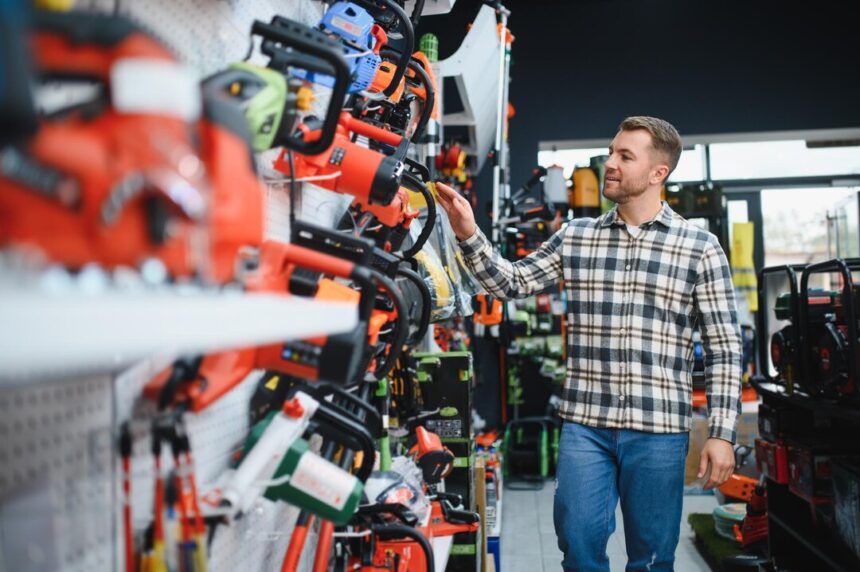If you’ve ever done yard work, used a chainsaw, or even browsed for garden tools, there’s a good chance you’ve come across Husqvarna. The Swedish company started out back in 1689, believe it or not, and it’s grown into one of the world’s best-known makers of outdoor power tools. These days, Husqvarna is known for everything from tough lawnmowers to high-tech robotic equipment—a staple in both professional landscaping and home DIY projects.
With all those years behind them, it’s not strange for rumors to pop up when market conditions get rough. So, is Husqvarna going out of business, or is the company still holding on? Let’s break down what’s really going on inside the Husqvarna Group, clear up the confusion around related businesses, and look at whether you need to worry about your warranty—or your next purchase.
Husqvarna Is Very Much Still in Business
Alright, let’s get this out of the way: Husqvarna is not shutting down. There’s been no official announcement of bankruptcy or closure. The company is still churning out new models of power tools and garden equipment, and you’ll find their products on store shelves and at dealers around the world.
The Husqvarna website is active. Their social media accounts are busy promoting new launches and deals. Even in 2024, they’re showcasing new battery-powered gear and smart home integration features. So, if you’ve heard the company was dead or about to disappear, that just isn’t true.
Of course, the outdoor power equipment world is competitive. Companies are always jostling for position, rolling out smarter tech, or offering better value. Husqvarna isn’t immune from that pressure. But as of now, the business is running, and their core products are on track.
Tough Market Conditions, Slower Growth, and Revenue Pressures
Now, all that said, Husqvarna isn’t in a vacuum. Like lots of companies tied to consumer spending, they’ve been hit by tougher economic climates, especially over the past year or two. With inflation, uncertain property markets, and global supply chain headaches, home improvement and gardening budgets got tighter.
During 2023 and carrying into 2024, executives at Husqvarna have noted sales slowdowns. Homeowners and landscapers have put off buying new equipment unless it’s absolutely needed. That’s meant lower operating results for Husqvarna compared to the boom in outdoor projects we saw during early pandemic years.
Analysts are watching Husqvarna’s finances pretty closely. Estimates suggest the company’s revenue for 2025 might dip around 1.4%, which isn’t great but also isn’t catastrophic. For comparison, other companies in this sector are hoping for about 4% annual growth. That tells us Husqvarna is underperforming a little, but it hasn’t fallen off a cliff.
So, what does that mean—could the company actually go bankrupt? Current financial models show Husqvarna’s risk of bankruptcy is about 9%. In plain English, that’s nearly 80% lower than the average for similar industrial companies. It’s not nothing, but it’s actually a healthy number and suggests they’re managing their debts and risks better than most. Banks and investors generally see Husqvarna as stable—not as a crisis case.
Confusion From the Bike and E-Bike Side: Pierer Mobility’s Exit
Part of the recent uncertainty comes not from Husqvarna’s classic outdoor equipment, but from another business with the same name—Husqvarna bikes. This isn’t the garden company your neighbor knows; it’s a brand owned and marketed by Pierer Mobility, an Austrian company that’s a major player in motorcycles, electric bikes, and mobility tech.
Earlier this year, Pierer Mobility made headlines by pulling the plug on its bicycle and e-bike operations. Sales were poor, electric bike oversupply was a big problem, and the division’s losses were mounting. Pierer decided it was time to sell off what e-bike stock remained, find new investors for the rest, and focus on their real strengths—mostly motorcycles and powersports.
It’s easy to see how this caused confusion. A lot of outlets reported “Husqvarna bikes shutting down,” and some people didn’t realize this part of the business isn’t the same as Husqvarna the outdoor tool company. The bike division was about 70% owned by Pierer, using the Husqvarna name under a licensing deal. It’s sad for fans of their electric bikes, but for someone who just wants to know if Husqvarna will still make chainsaws next year, it doesn’t actually matter.
If you’re curious, the restructuring on the Pierer side means their focus has shifted. They’re negotiating with investors—looking at both debt and equity—for what’s left of the two-wheeled business. But this shakeup is siloed from Husqvarna’s management and finances in Sweden.
So, What’s Next for Husqvarna Group?
The Husqvarna you see in hardware stores and landscaping catalogs isn’t planning to scale back or disappear. If anything, the company seems to be putting more resources into battery-powered tools and robot mowers. New features like smart connectivity and eco-friendly batteries are a big focus—and that’s where demand is heading.
There are challenges. Global demand for big-ticket outdoor gear is bumping along at a slower pace. Husqvarna’s latest financial reports are honest about “unfavorable market conditions” and pressure to cut costs while still investing in product development.
At the same time, the brand still holds a pretty solid slice of its market. Loyal users continue to recommend the distinctive orange and gray machines. Retail partners are still selling their products. The warranty system is up and running, and customer support hasn’t changed.
If you’re deciding whether to buy a Husqvarna lawnmower or chainsaw this year, you probably don’t have to worry about a sudden end to the brand. Dealers are still open and still pushing models. Husqvarna is shipping out new product lines, especially in regions like North America and Europe.
Industry Peers and Looking Forward
Across the outdoor power equipment industry, almost every major player is feeling some pain. Even top competitors like Stihl, Toro, and Echo have rolled out promotions and price incentives to keep customers interested as disposable incomes get squeezed.
Smaller brands without big cash reserves have had it worse, with several smaller factories ceasing operations or changing owners. The big names—Husqvarna included—tend to ride out rough years better than newcomers. Their scale, historic reputation, and broad product lineup make for a steadier ship.
People who invest in this industry, from big asset managers to ordinary homeowners, tend to track these trends by following business news sites and corporate updates. Sites like Blue Business Mag cover mergers and restructures that can confuse the picture but usually don’t spell imminent disaster for global brands like Husqvarna.
Sometimes, negative headlines about parts of a brand—like the bicycle business—end up coloring everyone’s perception. But for Husqvarna Group, the core business has held up under pressure and is still betting on innovation, not survival.
What Consumers Should Really Expect
From a customer’s perspective, you’ll likely keep seeing Husqvarna gear at your local hardware store and online. Reliable parts, warranty support, and new releases look set to continue. There’s been no official word about stopping any of their staple products or exiting major geographic markets.
Service centers are open. Third-party repair shops still offer Husqvarna-certified parts. The resale market for their outdoor tools is alive and well. Some stores and dealers are even highlighting discounts to help push inventory, though this is more about clearing last season’s stock than preparing for a shutdown.
If you’re a fan of the e-bikes and spotted Husqvarna’s name on the frame, or if you’re into high-speed motorcycles, those teams are having a tougher time. Pierer Mobility is adjusting, but again, that’s a different company division with separate finances and business goals.
No Big Drama: Just a Company Pushing Through Hard Times
To sum up a complicated story in a straightforward way—Husqvarna is not going out of business. They are dealing with some headaches, like weaker sales and a revenue outlook that isn’t as rosy as their competitors. But their core business in garden and outdoor power tools is operating, and there’s no direct line from current troubles to bankruptcy or closure.
Rumors about the brand’s health tend to spread when news hits about anything carrying the Husqvarna name, even if the real story is about electric bikes instead of chainsaws. Most of that confusion gets cleared up pretty fast once you look at the facts.
We all know every legacy brand faces a bumpy stretch now and then. Right now, Husqvarna is balancing sensible caution with measured investment. You can keep mowing your lawn or trimming your hedges with their equipment, and you shouldn’t have to worry that your new purchase or warranty will vanish overnight.
There’s no huge plot twist looming—just another big company weathering a few storms and keeping things moving. For now, Husqvarna’s story is about staying focused, serving customers, and riding out a tough market. That’s how things stand at the moment.
Also Read:










